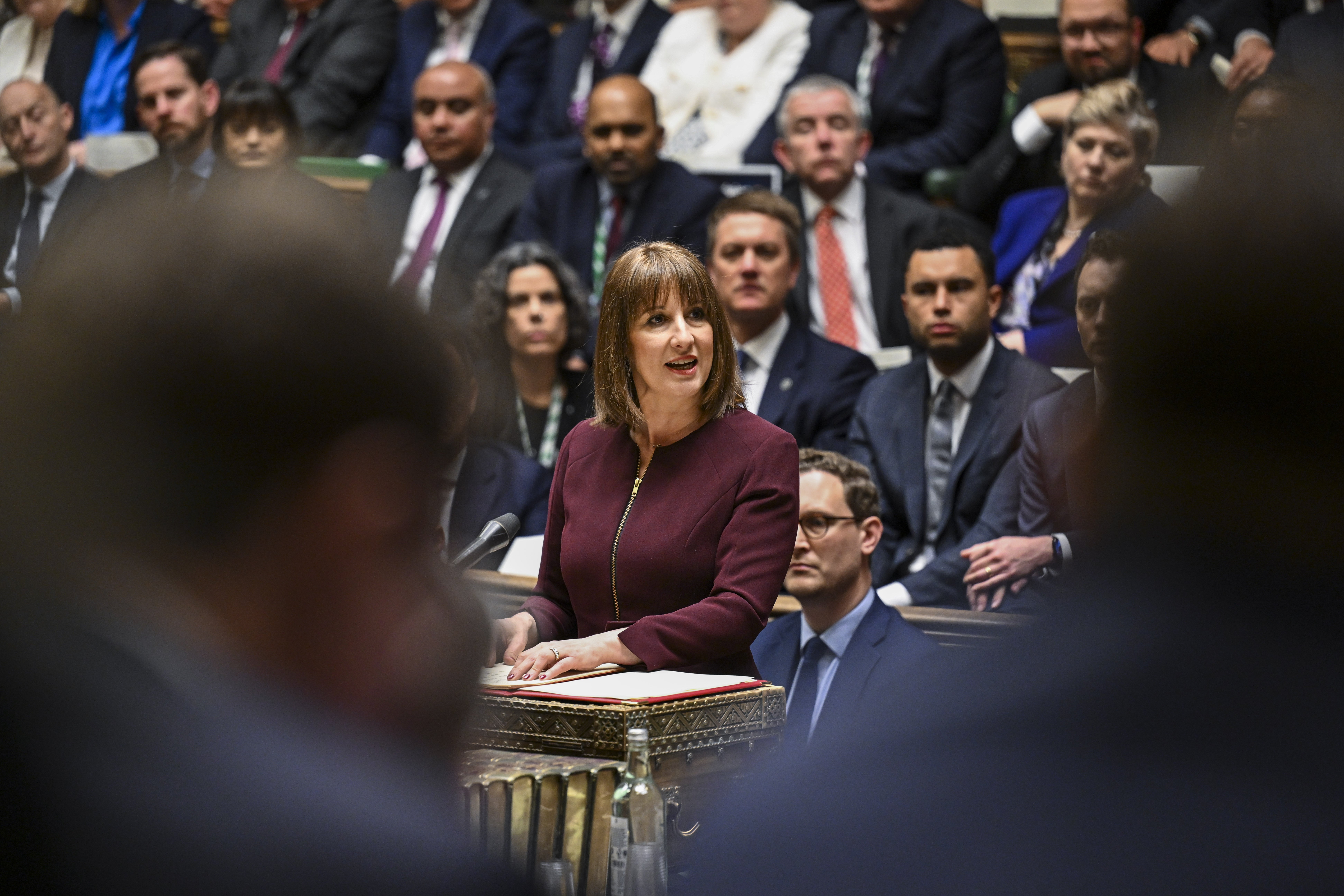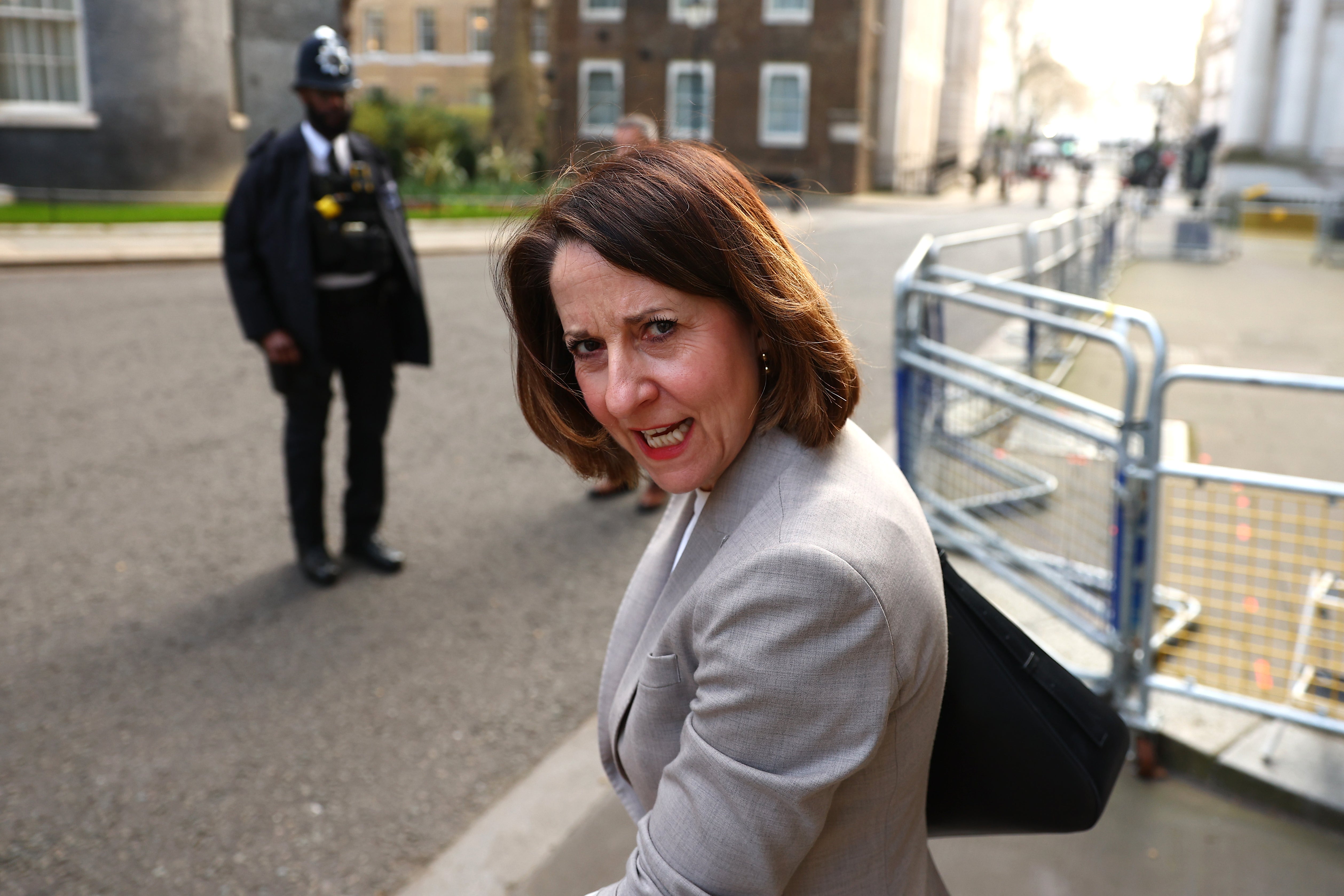Labour’s recently announced cuts to welfare spending may be much more severe than the government is claiming, several experts have warned.
The headline £4.8bn figure placed on the cuts conceal their ‘true scale’, new analysis argues, as ministers continue to rebut criticism of the measures.
The reforms, which largely focused on health and disability benefits, were announced by work and pensions secretary Liz Kendall on 18 March. The following week, chancellor Rachel Reeves revealed the scale of these cuts to be £4.8bn at Labour’s spring statement – as independently assessed by the Office for Budget Responsiblity (OBR).
Announcing the plans, Ms Reeves said: “The Labour Party is the party of work. We believe that if you can work, you should work. But if you can’t work, you should be properly supported.”
But a new report from the New Economics Foundation (NEF) has found that around £2bn in cuts has gone unstated due to how the OBR has costed the proposals. In its forecast, the spending watchdog takes £1.6bn away from the headline cuts figure to reflect Labour’s decision not to continue Conservative proposals to reform the Work Capability Assessment (WCA).

The proposals would have seen it made harder for people to qualify for certain health benefits under the WCA, but Labour instead has decided to scrap it altogether in 2028. Calling this a ‘saving’ is misleading, the NEF claims, as the change had never happened.
The think tank’s report says: “Using this phantom policy to offset the scale and impact of actual cuts happening in the real world is akin to suggesting that you should feel better off because your boss had thought about cutting your wages but then decided against it.
“Rejecting this accounting trick allows us to gain a clearer picture of how ill and disabled people will be affected by the government’s plans,” the NEF’s report adds. Its analysis finds that the true scale of the cuts actually sits at £6.7bn, and the amount of people that will be placed into poverty could be 350,000 – around 100,000 higher than the government’s own estimate.
The bulk of the government’s savings are set to come from changes to the Personal Independence Payment (PIP) which will effectively make it harder to qualify for. Claimed by 3.6 million people, the payment is designed to help people with extra costs incurred by their disability, whether they are working or not.
An analysis by Professor Ben Baumberg Geiger of King’s College London has argued that the OBR’s prediction of how people will respond to these changes only creates more misunderstanding around the scale of the reforms.

The OBR says that while 1.5 million PIP claimants would stand to lose their entitlement to the benefit if Labour’s changes were introduced today, the ‘behavioural response’ will reduce this to around 800,000 people.
This is because, they predict, the greater incentive to score four points on the assessment will cause more people to demonstrate that they qualify and reapply if unsuccessful. The report adds that this is a ‘highly uncertain judgement’.
But factoring this uncertain forecast into the headline figure, Prof Baumberg argues, creates a lack of clarity and transparency around the figures. The welfare expert said: “My guess is that the OBR’s estimates of behavioural effects are too high, and as a result, that the cuts even after accounting for behavioural effects are bigger [than the headline figure].
“But either way, at this stage where no-one really knows, drawing attention to this assumption is really crucial.”
The headline figure could be as high as £9bn in cuts, Prof Baumberg adds, when also factoring in Scotland and Northern Ireland.
A DWP spokesperson said: “Our reforms will help people into good work and financial independence, with our record £1 billion employment support package breaking down barriers for disabled people. We’re also rebalancing Universal Credit payment levels, so the benefit’s main rate rises permanently above inflation for the first time, in a boost for low-income families.
“We will continue to deliver a social security system for those with severe health conditions and we will protect the income of those who will never be able to work.”
Westminster council offers staff chance to take ‘privilege’ quiz
Why London pubs and clubs could stay open later ‘from tonight’
Tony Blair urges Starmer not to retaliate against Trump tariffs
Mapped: Where Labour’s benefit cuts will hit the hardest
Ashley Surcombe, influencer hospitalised in Seoul, has ‘heartbreaking’ health setback
A million cars sold in UK each year are too big for normal parking spaces







